U24 Consortium Members
Program Director/Principal Investigator
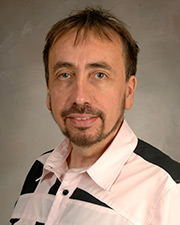 Claudio Soto, PhD
Claudio Soto, PhD
Professor of Neurology and Director of the Mitchell Center for Alzheimer’s disease and Related Brain Disorders (The Mitchell Center) at the University of Texas Health Science Center at Houston (UTHealth). Dr. Soto has been working for the last 28 years on the field of neurodegenerative diseases associated to the accumulation of misfolded protein aggregates, in particular in Alzheimer’s, Parkinson’s and prion disorders. He has made several important contributions to understanding the molecular basis of these diseases and the development of novel strategies for treatment and early diagnosis. He is the inventor of the PMCA technology which has been extensively highlighted in the scientific literature. He has been awarded many grants from NIH and private foundations for a total funding of over 30 million dollars.
Consortium Principal Investigators

Victor Banerjee, PhD
Postdoctoral Research Fellow at the Mitchell Center for Alzheimer’s Disease and Related Brain Disorders. Dr. Banerjee has a background on structural techniques to study misfolded proteins including SOD1, TDP43, tau and prions. He was trained as a postdoc in the lab of nobel laureate Stanley Prusiner working on cryo-EM studies of tau aggregates.
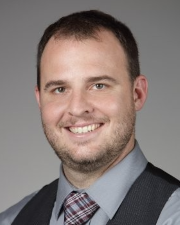 Paul Barrett, PhD
Paul Barrett, PhD
Program Director in the Fundamental Neuroscience Section at the Neurobiology of Aging and Neurodegeneration branch in the Division of Neuroscience. Dr. Barrett earned his B.A. in Chemistry from the State University of New York at Binghamton, and he earned his Ph.D. in Biochemistry from Vanderbilt University. His work at Vanderbilt University focused on understanding how the structural and cholesterol-binding properties of the Amyloid Precursor Protein contribute to amyloid beta production and the etiology of Alzheimer’s disease using multiple biophysical, biochemical, and imaging techniques. Following the completion of his doctoral work, Dr. Barrett moved to the University of Pittsburgh to obtain postdoctoral training in the field of neurodegeneration. He utilized molecular, cellular, and in vivo approaches to determine how the protein alpha-synuclein may block mitochondrial protein import and lead to dopaminergic cell death in Parkinson’s disease.
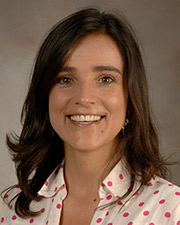 Sandra Pritzkow, PhD
Sandra Pritzkow, PhD
Associate Professor at the Department of Neurology, University of Texas Medical School at Houston. Dr. Pritzkow has been working with the PMCA technology for the past 16 years, first as a PhD student in the lab of Dr. Beekes in Germany, then as a postdoc in Dr. Soto’s lab. In 2017 she was appointed as Assistant Professor and implemented her own independent laboratory within the Mitchell Center for Alzheimer’s disease and related Brain disorders. Currently, she is leading the effort to develop the PMCA assay into a practical test for diagnosis of Alzheimer’s, Parkinson’s diseases and related tauopathies and synucleinopathies.
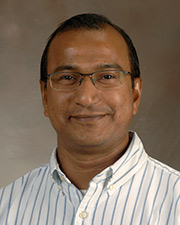 Mohammad Shahnawaz, PhD
Mohammad Shahnawaz, PhD
Assistant Professor at the Department of Neurology and The Mitchell Center at UTHealth. He has been working for the past several years on the aSyn-PMCA assay and the strain properties of aSyn aggregates. Additionally, he is expanding the PMCA technology for ultra-sensitive detection of α-synuclein oligomers in biological fluids. Dr. Shahnawaz has produced results showing the utility of PMCA for detecting α-synuclein aggregates in CSF of patients affected by PD and MSA.
 Irina Serysheva, PhD
Irina Serysheva, PhD
Professor in the Department of Biochemistry and Molecular Biology, Director of the Electro Cryo-microscopy Center and Director of the Structural Biology Imaging Center at UTHealth. Dr. Serysheva has devoted 25 years of her research career to using cryo-EM to examine macromolecular biological assemblies. She is an expert in high-resolution single-particle cryo-EM of membrane proteins.
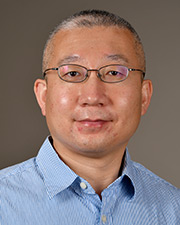 Fei Wang, PhD
Fei Wang, PhD
Assistant Professor of Neurology at the Mitchell Center for Alzheimer’s disease and Related Brain Disorders at the University of Texas Medical School in Houston. Dr. Wang has been working on understanding the role of misfolded protein aggregates in various neurodegenerative diseases, including prion diseases as well as Alzheimer’s and Parkinson’s diseases. He has been developing the tau-SAA for the past 3 years for future implementation.
 J. Austin Yang, PhD
J. Austin Yang, PhD
Program Director in Neurobiology of Aging and Neurodegeneration Branch in the Division of Neuroscience. Dr. Yang received his B.A. from National Taiwan University and earned his Ph.D. in Molecular Biology from the University of California, Irvine, where he also completed his postdoctoral training. He was a tenured faculty member at the University of Southern California and the University of Maryland between 2001 and 2015. His primary research and teaching interests were in using mass spectrometry, bioinformatic and proteomic approaches to address many issues in the areas of protein misfolding diseases and cancer biology. Dr. Yang joined the NIA in 2015 and his primary responsibility is managing and developing research programs on the etiology of Alzheimer’s disease.